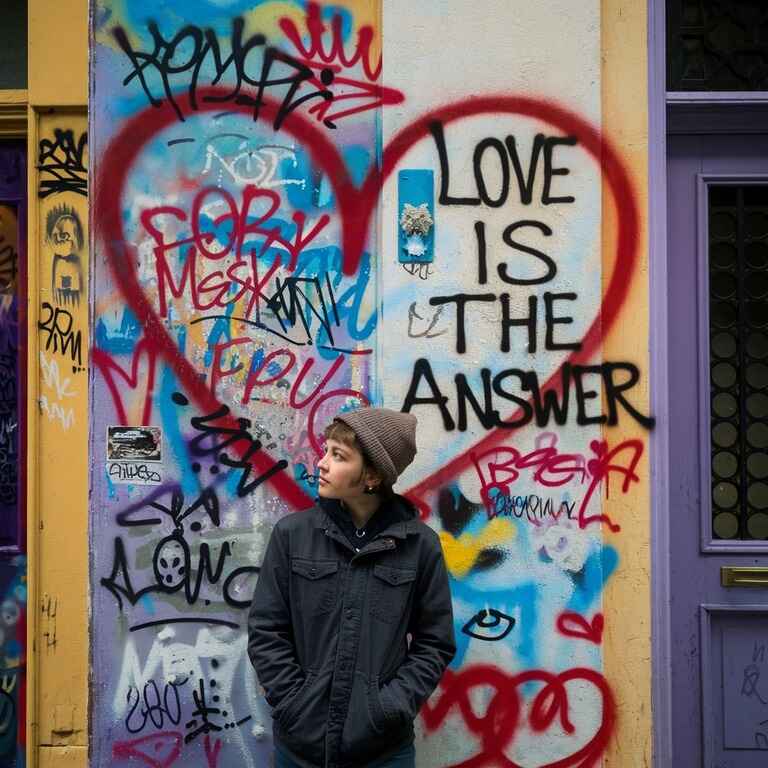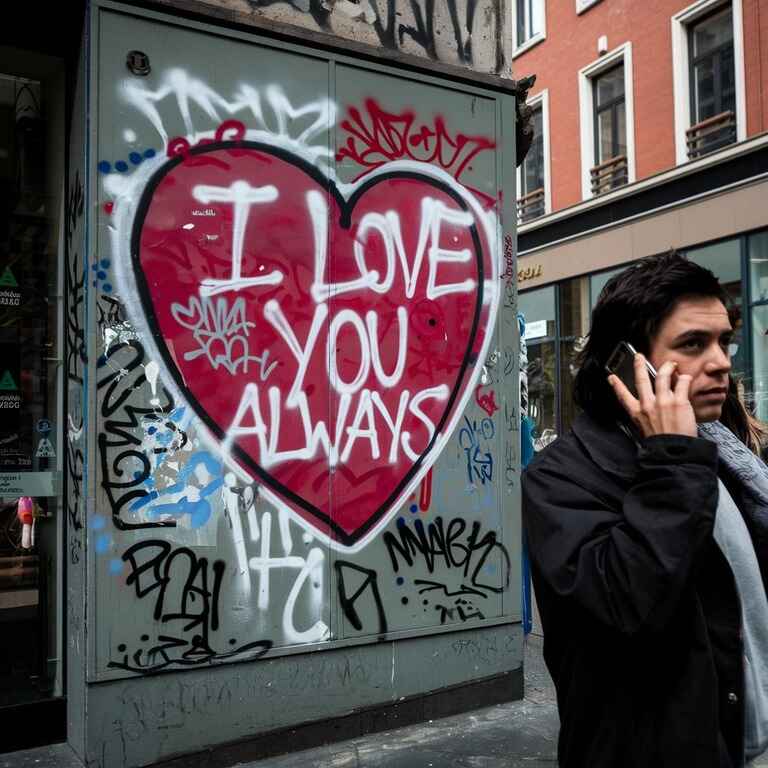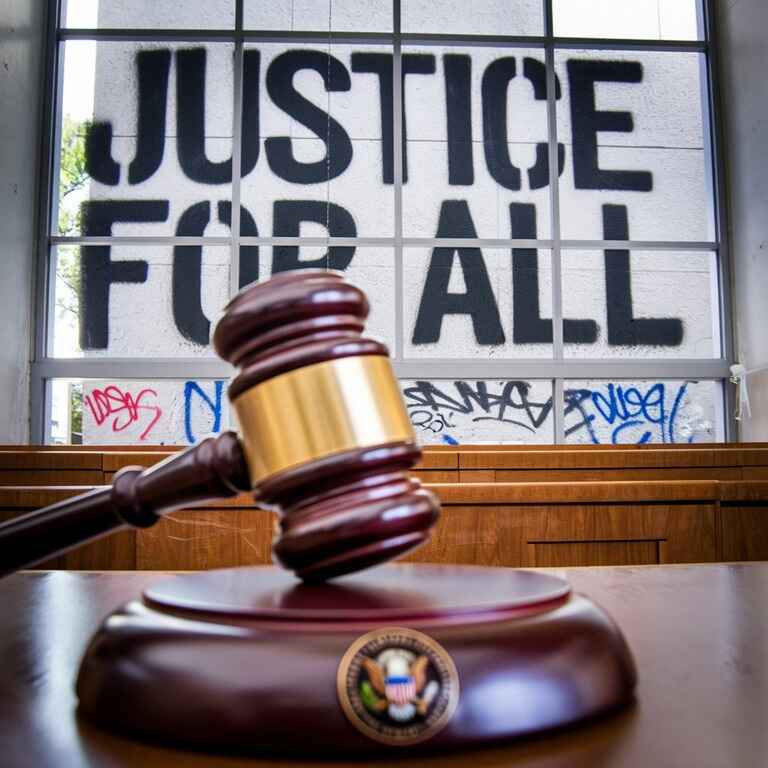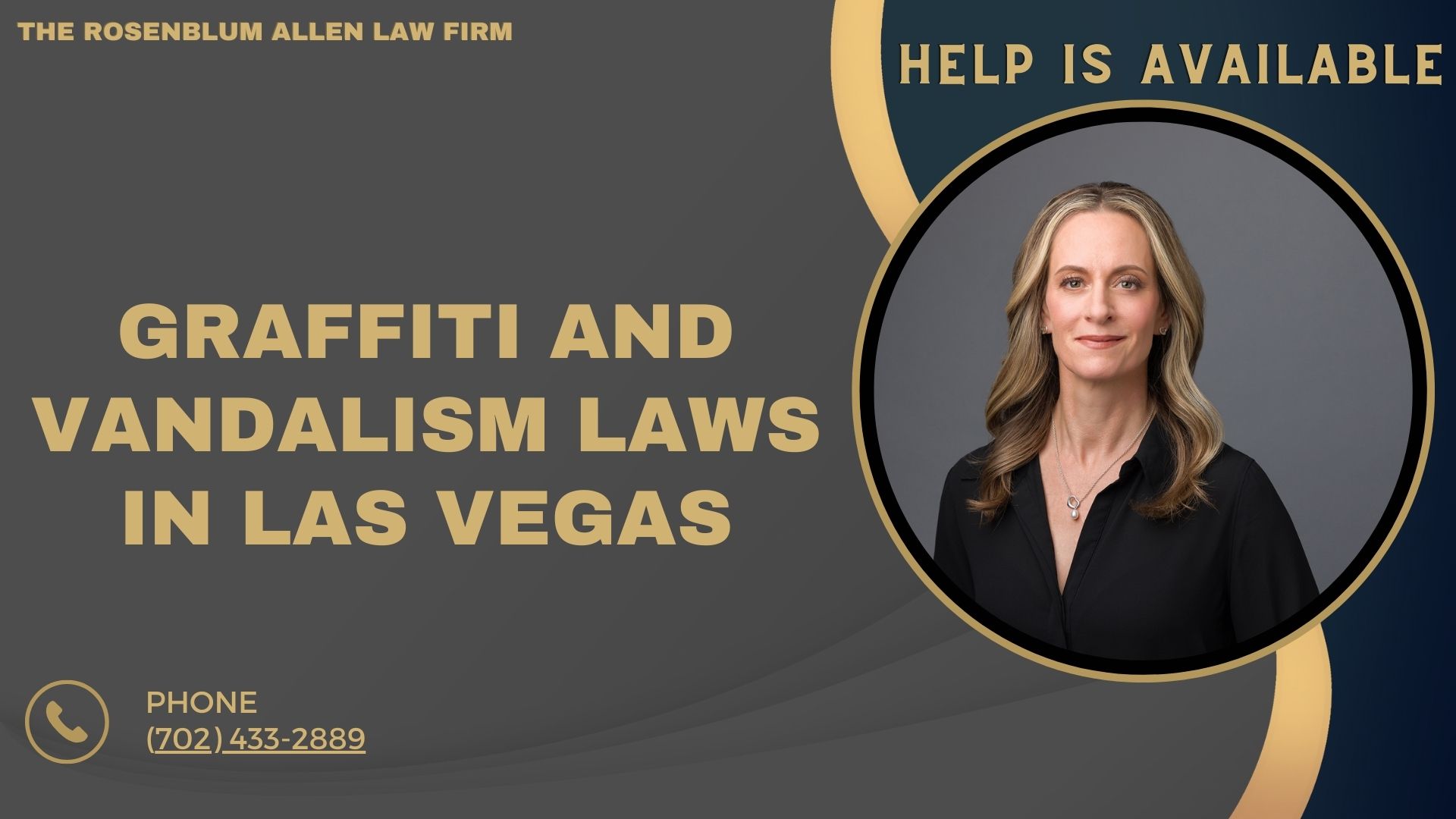Graffiti laws in Las Vegas are designed to protect public and private property from vandalism. These laws aim to deter individuals from defacing walls, bridges, and other structures with unauthorized art. Residents and visitors must understand the specific graffiti regulations, as the penalties for violating these laws can be severe.
 What is Considered Graffiti in Las Vegas?
What is Considered Graffiti in Las Vegas?
Graffiti refers to unauthorized markings, drawings, or writings on surfaces such as buildings, sidewalks, street signs, and vehicles. These markings are often considered vandalism because they alter the appearance of public and private property without the owner’s consent. Graffiti can take many forms, from simple tags to large murals, but in Las Vegas, all forms of graffiti are generally treated as illegal unless explicit permission is granted.
Legal Definitions of Graffiti in Las Vegas
- Vandalism: Graffiti is generally classified under vandalism laws in Las Vegas. Vandalism involves defacing or damaging property, and graffiti falls into this category because it intentionally alters a surface without authorization.
- Property Damage: Graffiti is considered property damage, and the law recognizes the aesthetic harm caused to surfaces like walls, fences, and public infrastructure. It may not always cause physical damage to a structure, but it often requires costly cleaning or repairs.
Types of Graffiti Offenses in Las Vegas
While all graffiti is considered illegal in Las Vegas, the law distinguishes between different forms based on the extent of the damage and the intent behind the act.
Tagging
Tagging is the most common form of graffiti, typically involving a person’s name or alias in stylized lettering. It is usually simple and quick to execute, often seen on buildings, lampposts, or street signs.
Mural Graffiti
Mural graffiti involves more significant, more intricate works of art. While some may argue that murals are artistic expressions, they are still considered illegal if done without permission. Murals may be seen on walls, trains, or other large surfaces.
Stenciling and Paste-ups
This form of graffiti involves applying pre-made designs or images to surfaces using stencils or adhesives. Although these pieces might be more detailed or visually appealing, they are still illegal if applied without authorization from the property owner.
Penalties for Graffiti Offenses in Las Vegas
Graffiti laws in Las Vegas carry significant consequences, depending on the severity of the offense and the damage caused. The penalties can range from minor fines and community service to jail time, especially for repeat offenders or those responsible for large-scale vandalism.
Criminal Charges for Graffiti in Las Vegas
In Las Vegas, individuals caught vandalizing property with graffiti can face both misdemeanor and felony charges, depending on the extent of the crime.
Misdemeanor Charges
- Typically, a misdemeanor charge applies to minor graffiti offenses, such as tagging smaller areas of property or committing a first offense with minimal damage.
- Penalties for misdemeanors can include fines, probation, and community service requirements.
Felony Charges
- Felony charges may apply if the graffiti significantly damages property, such as large-scale murals or widespread defacement of public infrastructure.
- Repeat offenders are more likely to face felony charges, even if the damage is minor.
Fines and Restitution for Graffiti in Las Vegas
- Monetary Fines: Penalties can vary widely based on the severity of the offense. Misdemeanors may involve fines of a few hundred dollars, while felony convictions can result in much higher fines.
- Restitution to Victims: Offenders may be required to pay restitution to the property owner to cover the cost of cleaning or repairing the defaced property. The restitution amount can sometimes be substantial, especially for commercial properties or historical buildings.
Community Service Requirements for Graffiti Offenses
In addition to fines and restitution, graffiti offenders in Las Vegas may be required to perform community service, often cleaning or repairing graffiti in public spaces. These programs are intended to help offenders recognize the harm caused by their actions and contribute positively to the community.
Mandatory Cleanup
Offenders may be tasked with removing graffiti from public places, such as bus stops, sidewalks, or government buildings. These activities serve as a reminder of the consequences of vandalism while also benefiting the community by reducing the visual impact of graffiti.
Graffiti Abatement Programs
Las Vegas has several graffiti abatement programs. In these programs, offenders may be assigned to work alongside local agencies to clean up graffiti in high-traffic areas. These programs aim to reduce the overall presence of graffiti in public spaces and deter future offenders.

The Role of Juveniles in Graffiti Offenses
In Las Vegas, juveniles caught committing graffiti offenses face consequences that differ from those of adults. The law recognizes that young people may not fully understand the long-term impact of their actions. However, this doesn’t mean they are exempt from facing penalties. Parents and guardians must understand what can happen if a child is involved in graffiti vandalism.
Juvenile Charges
While juvenile offenders may receive lighter penalties, graffiti still counts as criminal. If a minor is caught tagging or defacing property, they can be charged with vandalism. However, the consequences may be less severe than for adults, with a focus on rehabilitation.
Possible Outcomes for Juveniles
- Diversion Programs: Juveniles may be placed in diversion programs instead of serving jail time. These programs aim to educate young people about the impact of their actions and offer them alternatives to criminal behavior.
- Probation: Some juveniles may be placed on probation, which may require regular check-ins with a probation officer, school attendance, and completion of community service.
- Fines: Juveniles might be required to pay restitution to repair the damage caused by their graffiti.
Diversion Programs
Diversion programs allow young offenders to avoid a criminal record by participating in activities such as counseling, community service, or educational workshops. These programs are designed to teach juveniles the consequences of their actions and help them make better choices in the future.
Graffiti Laws in Public vs. Private Spaces
The consequences of graffiti vary depending on whether the crime occurs on public or private property. While both are illegal, the severity of the offense can differ based on the type of property involved.
Public Property
Graffiti on public property, such as government buildings, schools, or infrastructure like bridges and highways, is considered a more serious offense. Public property is often seen as a shared space, damaging it can disrupt the community. The government typically takes a more rigid stance on graffiti in these areas.
Penalties for Graffiti on Public Property
- Higher Fines: Graffiti on public property often results in higher fines due to the extensive resources required to clean or repair the damage.
- Harsher Sentences: Offenders who vandalize public spaces may face harsher sentences, including more extended community service requirements and significant restitution costs.
Private Property
Graffiti on private property, such as a homeowner’s fence or a business’s building, is illegal but may not carry the same weight as graffiti on public property. However, the property owner may still file criminal charges, and the offender could be required to pay for cleaning or repairs.
Penalties for Graffiti on Private Property
- Fines and Restitution: As with public property, offenders are typically required to pay fines and restitution for cleaning or repairing the damage.
- Increased Risk of Prosecution: Private property owners may be more likely to press charges, which could result in more serious legal consequences for the offender.

How to Report Graffiti in Las Vegas
If you encounter graffiti in Las Vegas, reporting it helps keep the city looking clean and beautiful. Fortunately, there are several ways to report graffiti, and the process is simple. Authorities encourage residents to take action and report vandalism to remove it quickly.
Methods to Report Graffiti
- Online Reporting: The City of Las Vegas has a portal where residents can submit graffiti reports. This tool allows you to upload photos and provide the exact location of the graffiti.
- Phone Hotline: You can call the city’s hotline to report graffiti. The hotline allows for direct communication with authorities, ensuring that the graffiti is recorded and dealt with promptly.
- Mobile Apps: Mobile apps are also available for residents to easily report graffiti. These apps make it convenient to take a photo and submit a report.
Why Reporting Graffiti Matters
When graffiti is reported quickly, it can be cleaned up faster. The longer graffiti stays up, the more it can negatively affect the neighborhood and lead to additional vandalism. By reporting it, you help prevent the spread of graffiti and contribute to the overall maintenance of your community.
Graffiti Removal Programs in Las Vegas
Las Vegas takes graffiti seriously and has several programs to remove graffiti and prevent its spread. These initiatives focus on cleaning public spaces and supporting property owners affected by vandalism.
City Initiatives for Graffiti Removal
The city has a dedicated graffiti abatement program to remove graffiti quickly. When graffiti is reported, crews are dispatched to clean the affected areas. This initiative helps maintain the appearance of public spaces and reduces the chance of graffiti becoming a persistent issue.
Services Provided by the City
- Free Graffiti Removal for Property Owners: Las Vegas offers free removal services for property owners whose buildings have been tagged. This helps reduce the financial burden on individuals who might not have the resources to clean the damage.
- Rapid Response Teams: Special teams are sent out to remove graffiti within 24 to 48 hours of being reported.
Private Graffiti Removal Efforts
While the city plays a key role, private property owners are also responsible for cleaning up graffiti. Many businesses and homeowners will take matters into their own hands and hire professional cleaning services to remove graffiti from their property. Additionally, some companies may take extra measures, such as installing security cameras or using anti-graffiti coatings, to prevent future vandalism.

Legal Defenses Against Graffiti Charges in Las Vegas
If you’re facing graffiti charges in Las Vegas, you might wonder if there’s a way to defend yourself in court. A few potential defenses could help reduce the severity of your charges or even get them dismissed entirely. These defenses focus on disproving the elements of the crime or showing that the circumstances surrounding your case weren’t as they seem.
Common Defenses to Graffiti Charges
While every case is unique, there are some common defenses people use when facing graffiti charges.
Lack of Intent
One potential defense is arguing that you didn’t intentionally deface property. If you prove that the graffiti was accidental or unintentional, it could help reduce your charges. For example, if you were part of a group but didn’t actively participate in the graffiti, you may be able to argue that you didn’t know what was happening.
Ownership of Property
In rare cases, individuals might argue they had permission to alter the property. If you show that the property owner gave you consent to create artwork on their building, then the charges might be dropped. However, this defense is difficult to prove and is most effective when the property owner supports your claim.
Mistaken Identity
Another defense could involve claiming that you were wrongly identified as the person who committed the graffiti. If little to no evidence links you to the crime, you might argue that someone else was responsible.
The Importance of Legal Representation
If you’re facing graffiti charges, seeking legal advice is a good idea. A criminal defense attorney can help you navigate the legal process, build a solid defense, and protect your rights.
How a Las Vegas Lawyer Can Help with Graffiti Charges
Facing graffiti charges can be overwhelming, especially when you don’t fully understand the legal process. This is where an experienced lawyer comes in. A skilled attorney can help you avoid serious consequences and guide you through the steps to defend yourself.
The Role of a Lawyer in Graffiti Cases
A lawyer specializing in criminal defense can offer several services to help you handle your graffiti case.
Investigating the Case
A lawyer will investigate all aspects of the case. This includes reviewing the evidence against you, interviewing witnesses, and checking if any mistakes were made during the arrest. They’ll also explore any possible defenses you may have.
Negotiating Plea Deals
Sometimes, a lawyer might negotiate a plea deal on your behalf. This could reduce charges or penalties, such as a lighter sentence or fewer fines. A plea deal might involve enrolling in a rehabilitation program instead of facing harsher criminal penalties.
Representing You in Court
If your case goes to court, your lawyer will represent you before a judge. They will argue your case, present evidence, and cross-examine witnesses. Having an experienced lawyer on your side can make a significant difference in the outcome of your case.
Legal Counsel for Juveniles
Legal representation is even more critical if a juvenile faces graffiti charges. A lawyer can help advocate for a diversion program, where the minor can avoid a criminal record by completing rehabilitation or community service. Proper legal counsel can protect the minor’s future and help them learn from their mistakes.

Breaking It All Down
Graffiti laws in Las Vegas are designed to maintain the city’s beauty and protect property owners from damage. Whether you’re a resident or just visiting, it’s crucial to understand the potential consequences of defacing property. Graffiti may seem like a harmless act of self-expression to some, but the law views it as vandalism, and the penalties can be severe.
Key Takeaways
- Graffiti is illegal in Las Vegas, whether on public or private property.
- Penalties include fines, restitution, community service, and even jail time.
- Juveniles caught committing graffiti may face lighter penalties, but they can still be charged.
- Reporting graffiti helps keep the city clean and prevents further vandalism.
- If you’re accused of graffiti, a lawyer can help you defend your case and reduce penalties.
Don’t hesitate to seek legal advice if you or someone you know is facing graffiti charges in Las Vegas. Understanding the laws and seeking proper legal representation can make all the difference in the outcome of your case.

Frequently Asked Questions
What is considered graffiti in Las Vegas?
Graffiti in Las Vegas refers to unauthorized markings, drawings, or writings on public or private property. This can include tagging, murals, stenciling, and paste-ups. Essentially, if it’s on a surface without permission, it’s considered graffiti.
Is graffiti illegal in Las Vegas?
Yes, graffiti is illegal in Las Vegas. Defacing property with graffiti is classified as vandalism, and depending on the severity of the crime, offenders can face fines, community service, or even jail time.
What are the penalties for graffiti in Las Vegas?
Penalties for graffiti offenses in Las Vegas can include:
- Fines
- Restitution (for the cost of cleaning or repairing the damage)
- Community service
- Jail time (for more serious crimes or repeat offenders)
Can minors be charged with graffiti in Las Vegas?
Yes, minors (under 18) can be charged with graffiti offenses. However, they may face penalties different from those for adults, such as diversion programs, probation, or community service rather than jail time.
How can I report graffiti in Las Vegas?
Graffiti can be reported in several ways:
- Online: Through the City of Las Vegas graffiti portal.
- Phone: By calling the city’s graffiti hotline.
Mobile apps: Some apps allow you to report graffiti with photos easily.
What are the defenses against graffiti charges?
Common defenses include:
- Lack of intent: Arguing the graffiti was accidental.
- Permission: Proving you had the property owner’s consent to create the artwork.
Mistaken identity: Claiming you weren’t the person responsible for the graffiti.
How can a lawyer help with graffiti charges in Las Vegas?
A lawyer can assist by:
- Investigating the case to identify mistakes or weaknesses in the evidence.
- Negotiating plea deals to reduce charges or penalties.
- Representing you in court to ensure your rights are protected.
What is the difference between public and private property graffiti charges?
Graffiti on public property (e.g., government buildings, bridges) is usually treated more seriously, often resulting in higher fines and harsher penalties. Graffiti on private property can still lead to legal consequences, but the charges may be less severe unless the property owner presses charges.
What should I do if my property has been tagged with graffiti?
If your property is vandalized, immediately report it to the city or remove the graffiti. In many cases, Las Vegas offers free graffiti removal services for property owners. You can also take preventative steps like installing security cameras or using graffiti-resistant coatings.

Additional Resources for You from The Rosenblum Allen Law Firm.
At The Rosenblum Allen Law Firm, we provide comprehensive legal services beyond surrogacy. Below are some additional resources that may be helpful, with embedded links for your convenience:
Criminal Defense Attorney: If you are facing criminal charges, our experienced defense team is here to protect your rights and fight for the best possible outcome.
Las Vegas DUI Lawyer: We help individuals accused of DUI offenses navigate the legal process, minimize penalties, and protect their driving privileges.
Domestic Violence Lawyer Las Vegas: If you are dealing with allegations of domestic violence, we offer compassionate representation to help you through these challenging situations.
Drug Possession Lawyer: Whether you’re facing misdemeanor or felony drug charges, we provide aggressive legal defense to safeguard your future.
Sex Crimes Attorney: Our firm offers discreet, skilled representation for those accused of sensitive sex crime cases, ensuring that your rights are protected.
CPS Defense Attorney: If you are facing allegations of child abuse or neglect, we are here to protect your parental rights and guide you through the CPS process.
Misdemeanor Lawyer: For minor offenses, our team helps clients resolve their cases efficiently and minimize long-term consequences.
Las Vegas Warrant Defense Attorney: If you have an active warrant, we can help you address it before it escalates to an arrest.
Las Vegas Probation Violation Attorney: If you’ve been accused of violating probation, we’ll work to defend you and reduce potential penalties.
Theft Crime Defense Lawyer: Whether you’re facing shoplifting or more serious theft charges, our firm is prepared to defend your case.
Kidnapping Lawyers: If you’re dealing with kidnapping charges, we’ll provide strategic legal support tailored to your situation.
Juvenile Defense Lawyers: Our firm is dedicated to protecting the rights of juveniles and helping them navigate the justice system.
Firearms Lawyer Las Vegas: We assist clients accused of firearm-related offenses, ensuring their rights are preserved and their cases are handled effectively.
Let us know how we can help. At The Rosenblum Allen Law Firm, your case is our priority. Feel free to reach out to us for assistance or consultation!

Offsite Resources for You
Here are some offsite resources related to graffiti laws in Las Vegas that you may find useful:
City of Las Vegas Graffiti Abatement Program: Learn more about reporting and removing graffiti in Las Vegas through the official city website. Visit here
Las Vegas Metropolitan Police Department (LVMPD): The official police department site for information on crime reporting, including graffiti offenses. Visit here
Nevada State Legislature: Find the full text of Nevada’s laws, including those related to graffiti and vandalism. Visit here
Southern Nevada Graffiti Coalition: A local group focused on graffiti removal and prevention. They also provide resources for community cleanup efforts. Visit here
National Association of Towns and Townships: This nonprofit group advocates for town and township governance, including tackling graffiti and vandalism in local communities. Visit here
Graffiti Removal Services of Las Vegas: A local service that specializes in graffiti cleanup for businesses and homes. Visit here
Graffiti Hurts: A nonprofit organization that provides educational resources on the impacts of graffiti and how to prevent it. Visit here
These resources offer valuable information for understanding graffiti laws, reporting issues, and even removing graffiti.

A Special Message from Our Lead Attorney, Molly Rosenblum Allen, Esq

Thank you for taking the time to explore these resources on graffiti laws in Las Vegas. I hope the information helps you better understand the legal landscape and your options. Please don’t hesitate to reach out if you have any further questions or would like to discuss your situation in more detail. My team and I are here to assist you.
Feel free to call us at (702) 433-2889, and we’ll start addressing your needs. We’re ready to help.





